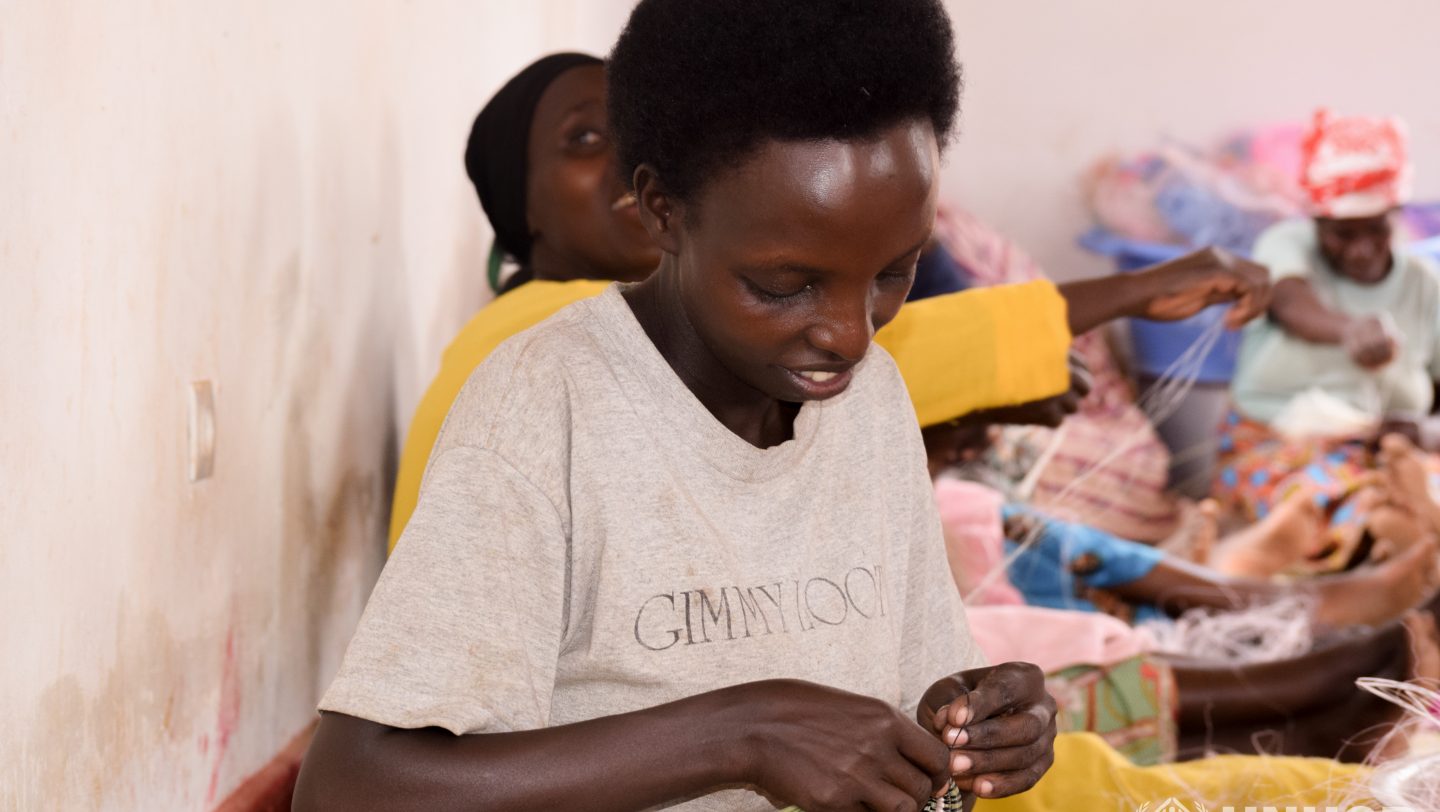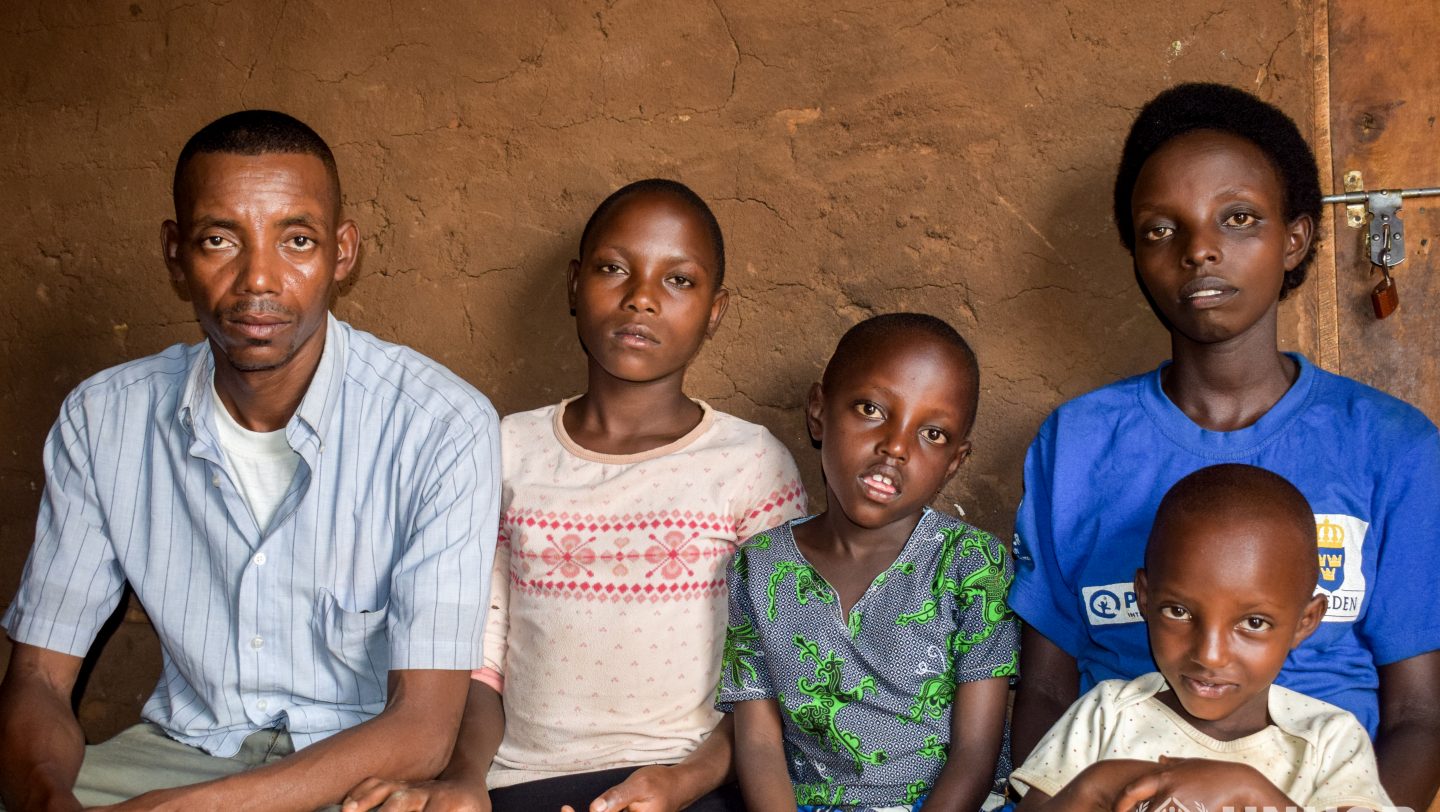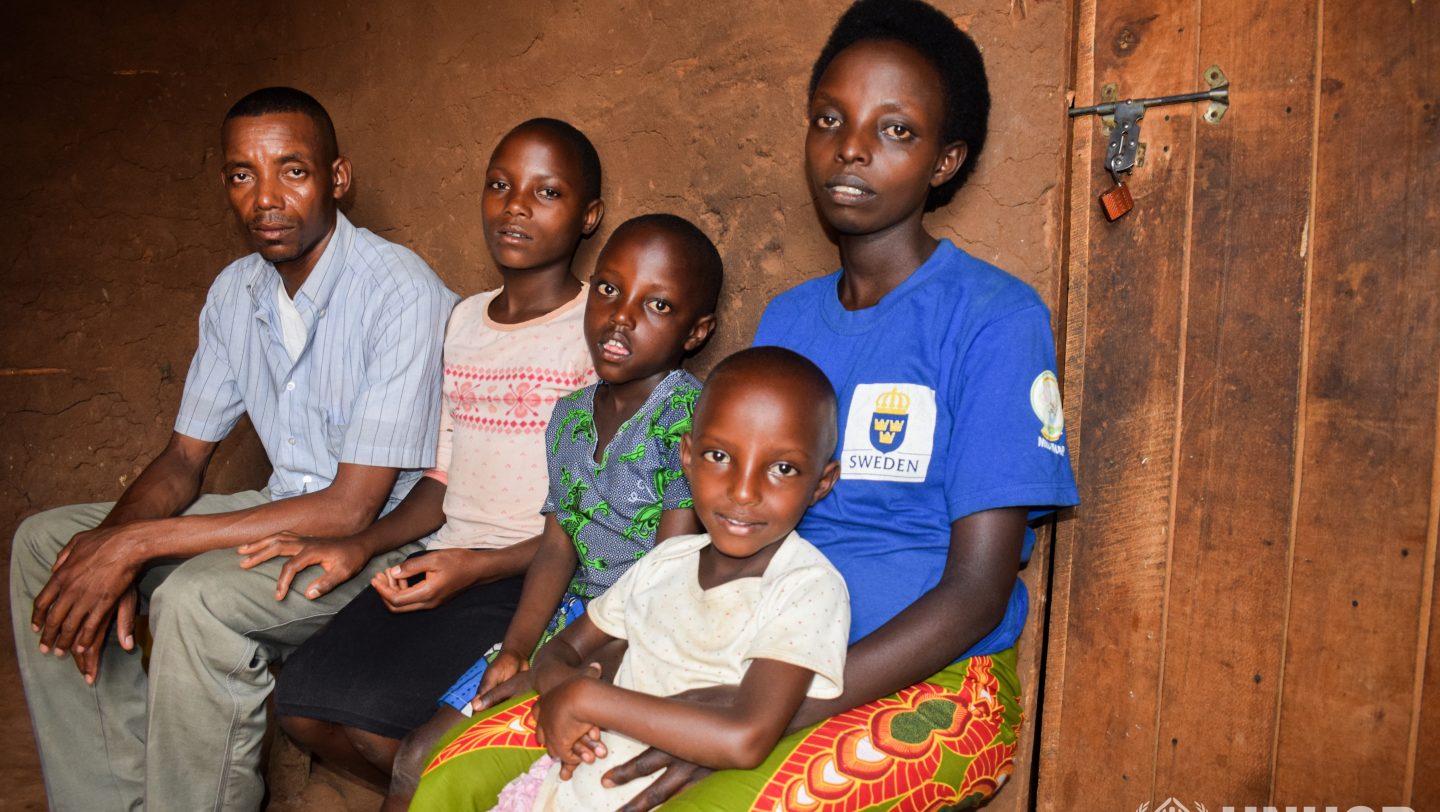Meet Burundian Refugee Francoise: an empowered woman who contributes to a great change in society
“With the income I make from weaving, I can afford supplementary food or anything I want to buy to enhance the living of my family”
Francoise is a 26 year-old woman weaving at the Women and Girls Opportunity Centre in Mahama camp. She fled the violence in Burundi alone with her three children in 2015. Her husband stayed behind in Burundi. After a terrible journey during when they were chased by rebel groups and had their belongings looted, they crossed the border for safety in Rwanda and arrived in Mahama camp.
In Burundi, Francoise was a farmer and she did not get the opportunity to go to school. Her mother was a needleworker and this how she got interested to learn on how to weave since she was a child. But it was challenging due to the poor weaving products material they were using.
Currently, Francoise lives with her husband Deo, who joined them in the camp seven months ago and their three children Nizigimana, Bon Fils and Clairia. All of their children are attending school in Mahama camp. Since her husband is jobless, he is the one taking care of them (cooking for the children and preparing them for school) when Francoise is at the centre weaving from Monday to Friday. They both complement each other in the home responsibilities.
“I joined the centre and became a member of Akeza Karigura cooperative in 2016. We were trained on business and weaving handcrafts as well. It has improved my living standard because with the income I make from weaving, I can afford supplementary food or anything I want to buy to enhance the living of my family”, said Francoise. “The opportunity to be a member of the cooperative gives me the chances to build a brighter future for my family. Therefore I am encouraging other women to step ahead and look for prospects.”
Francoise has learnt how to produce crafts and baskets. She hopes that if she returns to Burundi, she will be a knitter and will teach other women the skills she acquired to improve livelihood opportunities for women.
Justin Ngabonziza contributed reporting from Mahama refugee camp, Rwanda
Share on Facebook Share on Twitter




